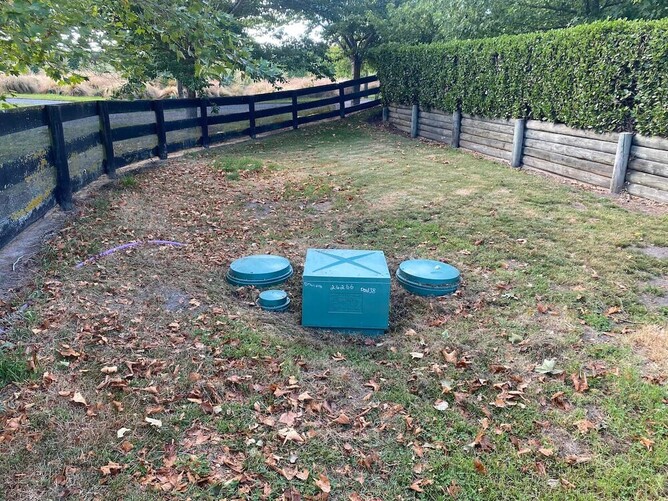Hi, Nathan here. Today I want to talk about something that’s often overlooked but critically important: the impact of soil type on septic tank installation.
For this article, I will use Hamilton as an example to make my point. Obviously, the soil at your place may differ considerably. That's why our installers always look after this part of the process to ensure we know what we are dealing with.
In rural Hamilton, where the landscape varies widely, understanding how different soil types affect septic systems can save you time, money, and headaches down the line (all septic systems are not the same!).
The Importance of Soil Type
Soil is not just dirt; it plays a vital role in how well a septic system operates. The soil’s texture, composition, and drainage capability can significantly influence the installation and functionality of your septic tank.
In Hamilton, our Waikato installer, James, often encounters a range of soil types, including clay, silt, sand, and loam. Each of these has its unique characteristics that can impact how wastewater is absorbed and filtered.
Clay Soil
Clay is prevalent in many areas around Hamilton, and while it might seem sturdy, it has poor drainage capabilities. The compactness of clay soil means that water moves through it very slowly.
This can lead to issues like ponding or backing up if the septic system is not properly designed.
If your property is primarily clay, we may need to consider alternative systems, such as mounded septic systems, which elevate the tank above the soil level to facilitate better drainage.
We will discuss this sort of thing with you during or after our inspection.
Sandy Soil
On the flip side, sandy soil is excellent for septic tank installations because it drains quickly.
However, this can also be a double-edged sword. While fast drainage can prevent system backups, it can also lead to insufficient treatment of wastewater if the soil doesn’t have enough time to filter the effluent properly.
In Hamilton, areas with sandy soil require careful assessment to ensure that the system is designed to allow adequate absorption and treatment without contaminating groundwater.
Loamy Soil
Loamy soil is considered the ideal type for septic systems due to its balanced composition of sand, silt, and clay. This combination offers good drainage and retention, allowing wastewater to be treated effectively before it reaches the groundwater.
If you’re lucky enough to have loamy soil in your rural Hamilton property, you’re in a great position for a reliable septic system installation.
Silt Soil
Silt soil can pose its own challenges. While it has good nutrient retention properties, it can become compacted and reduce permeability, leading to slow drainage.
If your property has predominantly silt soil, we will need to evaluate the installation area carefully to avoid potential problems with system performance.
The Installation Process
Understanding your soil type is crucial during the installation process. At DrainPro, we conduct thorough soil tests to determine the best design for your septic system.
This involves digging test pits and evaluating the soil’s structure, texture, and drainage capabilities. Based on these findings, we can recommend the most suitable system to ensure optimal performance and longevity.
Environmental Considerations
Another factor to consider is how soil type impacts the environment. Poorly functioning septic systems can lead to contamination of groundwater and local waterways.
In Hamilton, where many rural properties rely on septic systems, ensuring that your installation is tailored to your soil type is essential for protecting our natural resources.
Conclusion
At DrainPro, we’re dedicated to providing expert guidance and quality service to ensure your septic system operates efficiently, protecting both your home and the environment.
If you have any questions or would like to discuss your specific soil type and septic needs, please reach out to our team. We’re here to help you navigate the complexities of septic systems in rural Hamilton!
We also service the following areas: Auckland, Tauranga, Christchurch and Central Otago.


